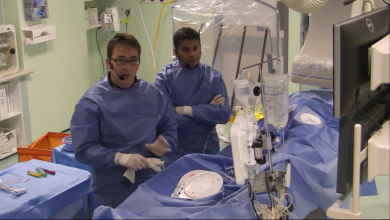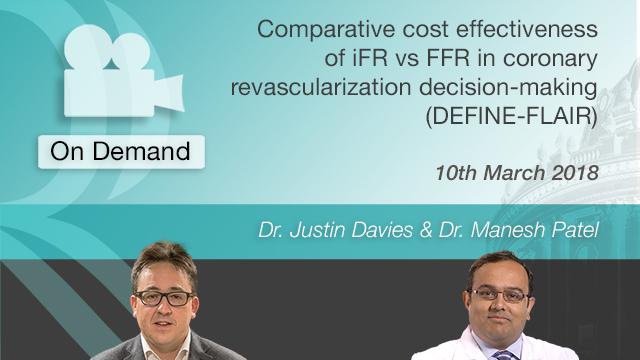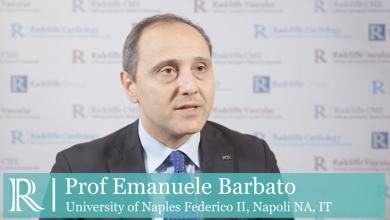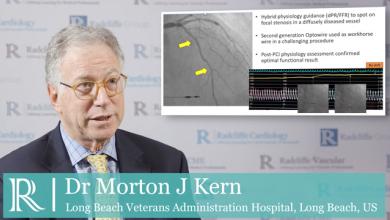Invasive coronary physiology is a key instrument in decision making for the interventional cardiologist.
Fractional flow reserve (FFR) has been well validated in chronic stable coronary artery disease. FFR is the ratio of the pressure distal to a lesion relative to the aorta pressure during maximal hyperaemia. Its practical applications are expanding into other clinical situations, including acute coronary syndrome, severe aortic stenosis and post percutaneous coronary intervention.
Instant wave-free ratio (iFR) is a resting index used to assess severity of an intracoronary stenosis. It measures the ratio of mean coronary pressure distal to a stenosis to the mean aortic pressure during an isolated period of diastole – the “wave-free period”.
It is an attractive alternative to FFR because it does not require hyperaemia, and therefore has a lower incidence of patient discomfort, side-effects, and shorter procedural time.




























